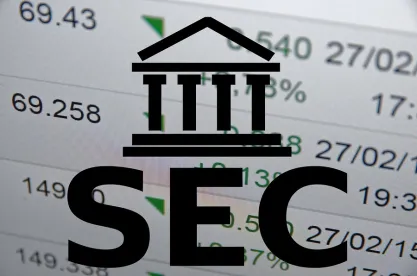On November 24, 2020, the Securities and Exchange Commission (SEC) proposed long-awaited and welcome amendments to the rules governing offers and sales of securities under compensation programs. Specifically, the proposed rules would amend Rule 701 under the Securities Act of 1933, which is an exemption from registration applicable to non-reporting companies, and Form S-8, the registration statement used by reporting companies. According to the SEC, the amendments are designed to modernize the exemption and registration framework in light of the significant evolution of compensatory securities offerings.
Key proposed amendments to Rule 701 would:
-
Relax the additional disclosure requirements for transactions exceeding $10 million during any consecutive 12-month period, by providing that:
-
the requirement to provide additional disclosures only applies with respect to those sales that exceed the $10 million threshold
-
financial statements must be available on at least a semiannual basis and completed within three months after the end of the second and fourth quarters (which conforms the Rule 701 age of financial statement requirements with those of Regulation A)
-
in lieu of providing financial statements, issuers may provide an independent valuation report of the securities’ fair market value as determined by an independent appraisal consistent with the rules and regulations under Internal Revenue Code Section 409A, provided certain conditions are met
-
foreign private issuers eligible for the exemption from registration under Rule 12g3-2(b) under the Securities Exchange Act of 1934 would be permitted to provide financial statements prepared in accordance with home country accounting standards without reconciliation to US GAAP.
-
-
Require that, with respect to derivative securities that do not involve an investment decision by the recipient to exercise or convert (such as restricted stock unit awards), disclosure must be provided in a reasonable period of time before the date of grant or, if the recipient is a new hire, no later than 14 calendar days after employment begins.
-
Clarify that, with respect to derivative securities assumed by an acquirer following a business combination, the subsequent exercise or conversion of the derivative securities would be exempt from registration, provided the target company complied with Rule 701 at the time of grant and the acquirer complies with any applicable disclosure requirements.
-
Increase two of the three regulatory ceilings that limit the amount of securities that may be sold under Rule 701, such that during any consecutive 12-month period an issuer could sell securities up to the greater of:
-
25% of the total assets of the issuer (increased from 15%);
-
$2 million (increased from $1 million); or
-
15% of the amount or class of securities offered.
-
-
Extend eligibility under both Rule 701 to:
-
former employees with respect to certain post-termination grants;
-
former employees of acquired entities;
-
certain consultants and advisors that are entities; and
-
employees of any issuer subsidiary (currently provided for under Form S-8 but not under Rule 701).
-
With respect to Form S-8, key proposed amendments would:
-
Clarify that issuers may register an unallocated pool of securities under multiple plans on a single Form S-8.
-
Clarify that issuers may add plans to an existing Form S-8 by filing an automatically effective post-effective amendment if the new plan does not require the authorization and registration of additional securities.
-
Permit the addition of securities or classes of securities to an existing Form S-8 by filing an automatically effective post-effective amendment.
-
Extend eligibility to former employees and consultants and advisors that are entities (consistent with the changes to Rule 701).
-
Ease the challenges faced by issuers registering securities to be offered under defined contribution plans by requiring registration based on the aggregate offering price of all the securities actually sold pursuant to the plan, and implementing a new fee payment method that would require issuers to pay the fee for all sales made pursuant to such plans during a given fiscal year no later than 90 days after the issuer’s fiscal year-end.
-
Conform the Form S-8 instructions to current IRS plan review practices for qualified plans.
In a separate release issued on the same day, the SEC also proposed a temporary, five-year expansion of Rule 701 and Form S-8 to permit compensatory offers and sales of securities to gig economy workers, provided certain conditions are met.
The public comment period for the proposals will remain open for 60 days following publication of the proposed rules in the Federal Register.




 />i
/>i

